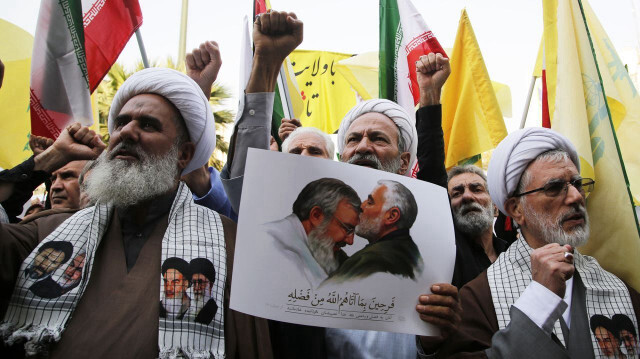
Cabinet failed to reach concrete decision after 4-hour late-night discussion on issue of attack on Iran, says Israeli Public Broadcasting Corporation
The Israeli Security Cabinet has postponed a vote on the timing of an attack on Iran and potential targets, local media reported on Friday.
The Israeli Public Broadcasting Corporation reported that the Cabinet failed to reach a concrete decision after a four-hour late-night discussion on the issue of an attack on Iran.
The Walla news site confirmed that while the Cabinet discussed the potential strike, no decisions were made.
The discussions included various topics related to the Israeli planned attack on Iran, but the expected vote on retaliation for the recent Iranian missile attack did not take place, it added.
Consequently, Prime Minister Benjamin Netanyahu and Defense Minister Yoav Gallant were not authorized to make decisions on the matter.
The media outlet said the strategy appears to involve delaying the vote and approval until just before any potential attack, to maintain an element of surprise. It also mentioned that the delay could have an impact on Gallant's upcoming trip to the US.
Recently, Netanyahu set conditions for Gallant's visit to the US, indicating that the trip could only proceed after he spoke with President Biden and received approval from the Cabinet on the nature of the response to Iran.
Days earlier, the Cabinet approved a response to the Iranian missile strike, but the timing and objectives of the counterstrike remained under discussion.
On October 1, Iran launched an attack involving approximately 180 missiles in retaliation for the assassination of Hamas' former political bureau chief Ismail Haniyeh in Tehran, along with other targets, including Hezbollah's Hassan Nasrallah and a leader in the Revolutionary Guard, Abbas Neelvroushan.
The Israeli army later acknowledged that the missile attack caused damage to some of its air bases, asserting that preparations for retaliation against Tehran were ongoing.
Iran has defended its actions, citing Article 51 of the UN Charter, which affirms member states' right to use force in self-defense against armed attacks.
Hello, the comments you share on our site are a valuable resource for other users. Please respect other users and different opinions. Do not use rude, offensive, derogatory, or discriminatory language.
The floor is all yours.








